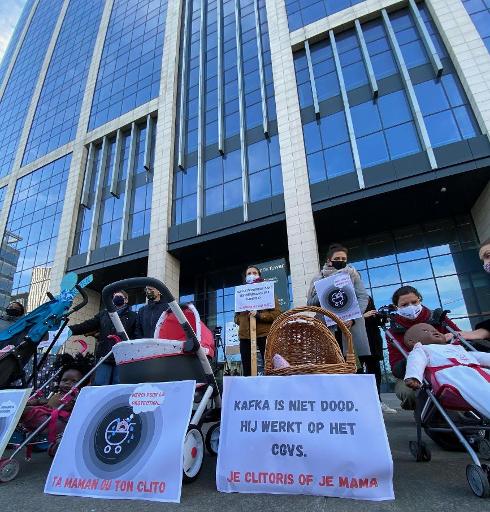Around 15,000 women in Belgium have been reported as victims of genital mutilation (FGM) and another 8,000 girls are still at risk, the Centre for Secular Action said on Friday, the eve of International Day of Zero Tolerance for Female Genital Mutilation.
However, these figures are believed to underrepresent the problem, as Belgium lacks official data and most mutilations are hidden from view.
In 2018, 17,575 girls and women living in Belgium had reportedly been excised live in Belgium, whilst another 8,342 are intact but at risk of excision, according to GAMS Belgium, a group that fights for the abolition of this practice.
It further reported that every year, 1,419 excised women give birth in a Belgian maternity hospital, requiring appropriate care.
"Politicians, the health sector, the police, justice and civil society must join forces to put an end to this practice, which is contrary to the physical and psychological integrity of girls and women," urged the Centre for Secular Action.
"Female genital mutilation is a violent practice that is enormously harmful both physically and mentally. No woman in the world should be a victim of this."
Related News
- Belgium is underprepared for a future crisis, report warns
- 20% of people in Belgium now have Covid-19 antibodies
“In the coming years, together with my colleague Minister Vandenbroucke, I will step up the fight against this. Among other things, we will ensure that doctors will be better trained to recognise risk signals and know what they can do when a girl or woman has become a victim,” State Secretary for Equality Sarah Schiltz told The Brussels Times.
With more than 11,000 females who have been excised or are at risk, Flanders is the region most affected by the problem, compared to 8,000 in Brussels and 5,500 in Wallonia.
"It is not a question of condemning or judging cultural practices, as to do so would be counterproductive,” explained Véronique De Keyser, the president of the centre that specialises in optimising prevention and care training, the transmission of information, and regular collaboration between interveners and institutions.
On the contrary, she highlighted, "we must listen to these women and girls, these parents and men, while remaining firm on the principle: in our country, the physical and psychological integrity of the victims must be guaranteed to them."
In 2001, Belgium put in place a specific criminal law provision on FGM, Article 409 of the Penal Code, which prohibits all forms of this practice.
The criminal offence consists of the performance of FGM, the participation, the facilitation, and the attempt to perform it. Committing the offence on an underage female is considered an aggravating circumstance that increases the penalty.
Lauren Walker
The Brussels Times

